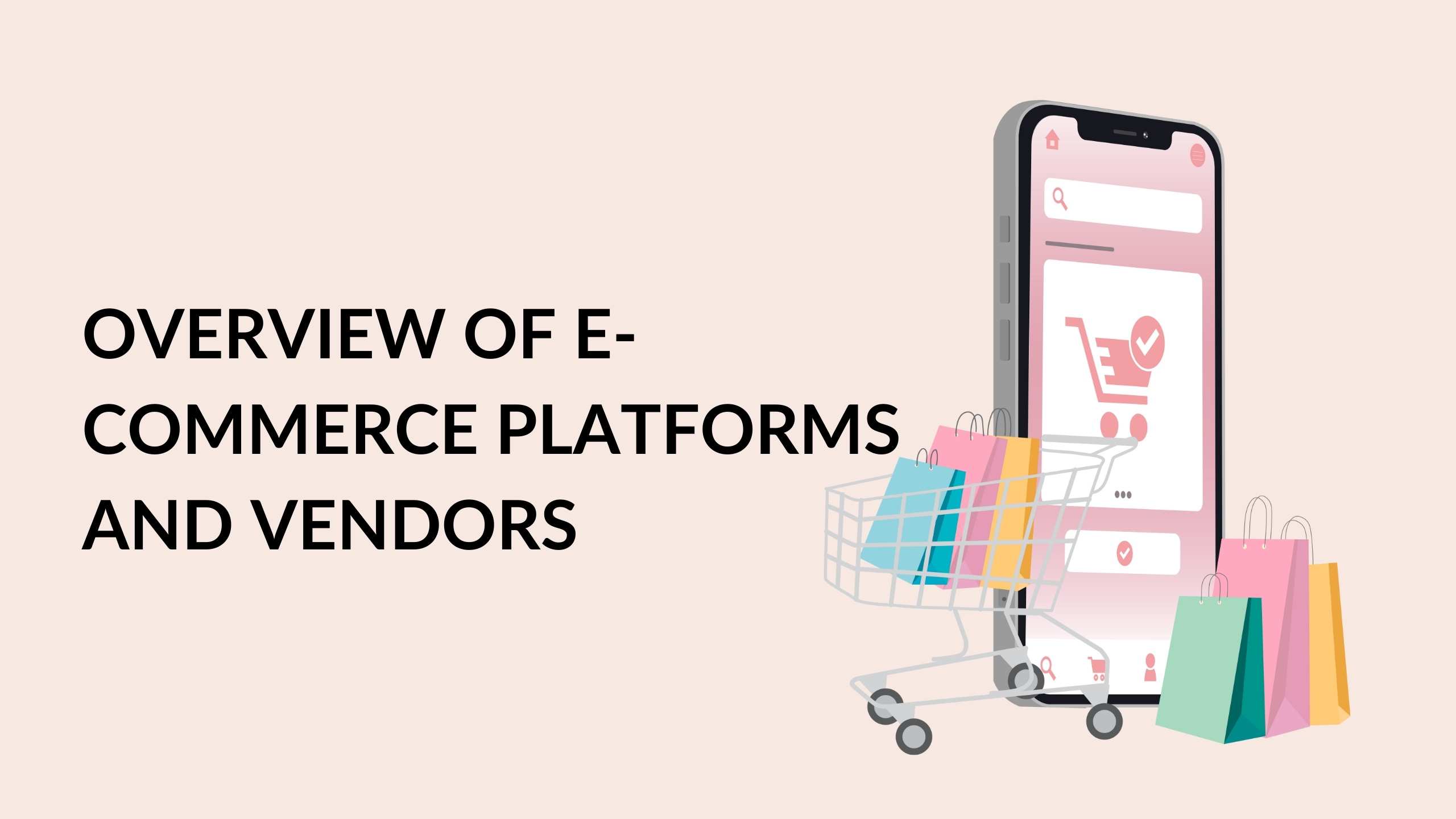Overview of E-commerce Platforms and Vendors


Overview of E-commerce Platforms and Vendors
E-commerce is the heartbeat of modern retail, and the right platform can make all the difference. In this comprehensive overview, we’ll explore the landscape of e-commerce platforms and vendors, shedding light on the key players in the SaaS subscription stack.
Understanding E-commerce Platforms and Vendors
What are E-commerce Platforms and Vendors?
E-commerce platforms are software solutions that enable businesses to build and manage their online stores. These platforms offer a range of features, from product listing and inventory management to payment processing and order fulfillment. E-commerce vendors, on the other hand, are the providers of these platforms, offering businesses the tools they need to establish and grow their online presence.
Key Players in the E-commerce Landscape
Now, let’s delve into the world of e-commerce platforms and vendors, highlighting a selection of SaaS products that stand out in 2023.
1. Shopify
Shopify is a powerhouse in the e-commerce realm. Known for its user-friendly interface and extensive app ecosystem, Shopify caters to businesses of all sizes. It offers a seamless platform for building and managing online stores with features like customizable storefronts and secure payment options.
2. Magento
Magento, an Adobe company, is a versatile open-source e-commerce platform. It is highly customizable and scalable, making it a favorite among businesses with unique requirements. With features like advanced inventory management and a robust extension marketplace, Magento empowers businesses to create tailored online experiences.
3. WooCommerce
As a WordPress plugin, WooCommerce seamlessly integrates with existing websites. This flexibility makes it a popular choice for businesses already leveraging the WordPress platform. WooCommerce offers a range of extensions for enhanced functionality, making it suitable for businesses of varying sizes.
4. BigCommerce
BigCommerce is a SaaS e-commerce platform designed for growth. It focuses on simplifying online store management, offering features like multi-channel selling, customizable themes, and robust marketing tools. With a cloud-based architecture, BigCommerce ensures scalability to meet the evolving needs of businesses.
5. Salesforce Commerce Cloud
Salesforce Commerce Cloud integrates e-commerce seamlessly with customer relationship management (CRM). This solution empowers businesses to create personalized shopping experiences, streamline operations, and drive customer engagement. With its cloud-based infrastructure, Salesforce Commerce Cloud ensures flexibility and scalability.
6. Square
Square extends beyond payment processing to offer a comprehensive suite of e-commerce tools. From point-of-sale solutions to online store management, Square’s integrated platform caters to businesses looking for a cohesive and streamlined approach to both online and offline sales.
7. Zoho Commerce
Zoho Commerce is part of the Zoho ecosystem, providing a comprehensive suite of tools for e-commerce businesses. It covers inventory management, order processing, and marketing automation, offering an integrated solution for businesses looking to manage various aspects of their online operations in one place.
Conclusion
Navigating the expansive world of e-commerce platforms and vendors is a crucial step for businesses aiming to establish or enhance their online presence. The products mentioned above represent a diverse range of solutions, each with its unique features and strengths.
When choosing an e-commerce platform, consider factors such as scalability, customization options, and ease of use. Whether you’re a small business or a growing enterprise, there’s a solution tailored to your needs in the dynamic landscape of e-commerce.








